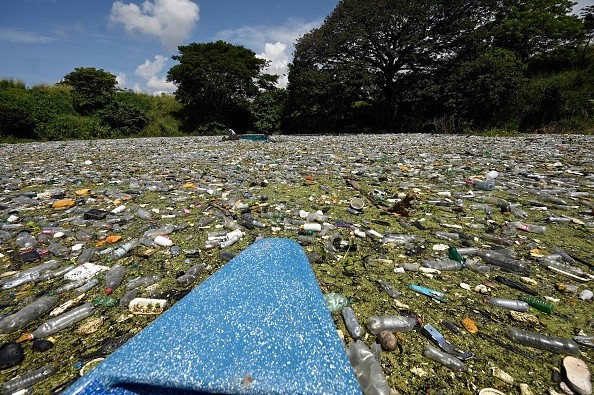A blanket of plastics with different brands is seen floating in a 13,500-hectare lake in El Salvador. The plastics in Lake Suchitlan have raised concerns over the effects on communities and the environment.
Lake Suchitlan is an artificial lake created in 1976. Now, it has become a tourist attraction near small islands such as Trinidad, El Leons, El Burro, El Salitre and Los Enamorados, and many others.
The lake is abundant in many species and serves as a habitat for fishes and birds. UNESCO has considered Lake Suchitlan of international importance because of the many species in the lake.
According to Phys Org, Fernando Lopez, the environment minister, said the country produces 4,200 tons of waste daily, and 1,200 tons of it are in rivers, beaches, and streets.
However, the report published on September 16, 2022, in Phys Org, showed the concerning blanket of plastics in the artificial lake.
Communities have experienced the worst of the plastics, according to the report. They added that:
- The plastic pollution in the artificial lake has caused to force cichlid fish and tilapia into the deeper part of the lake.
- Luis Penta, 25, told AFP that it had been two months since they went fishing in the lake.
- Ducks and tortoises were reported to go through the plastics. Also, horses were seen in the lake drinking contaminated water.
To address the problem of plastics, communities and local state authorities collaborated in cleaning the lake by hand.
Other affected areas

Moreover, it revealed that the beaches of Omoa in Honduras suffer from plastic waste. The area is located on the coast.
However, the beauty of the place is being affected by plastic waste showing an island-looking plastic, according to the article.
With the growing concerns about plastic waste, environmentalists, communities, and others stressed the importance of addressing the issue.
To address the problem of plastics, communities and local state authorities collaborated in cleaning the lake by hand.
Also Read: Mexican Mangroves Help Mitigate Climate Change By Capturing Carbon For the Past 5,000 Years
The United Nations Environment Programme (UNEP) said plastic pollution is a global concern. It added that almost 7 billion of 9.2 billion tonnes of plastic from 1950 to 1971 ended plastic waste in landfills.
The UN also explained that plastic pollution, with the worsening production of plastics, can affect the natural process and habitat and contribute to climate change. It can impact communities, livelihoods, and food production.
To address the problem, the UNEP stressed assessing plastics' economic, social, environmental, and health risks.
According to National Geographic, plastic pollution has become a pressing environmental issue because of the rapid production of disposable plastics. It added that pollution is most present in developing African and Asian nations where the collection system of plastic waste is poor or inefficient.
The same report pointed out that plastics are harmful to wildlife. It highlights that millions of animals die from plastic yearly.
Call to Action
Plastic pollution is no joke. Evidence shows how it impacts humans and animals. As a result, being responsible for plastic consumption can bring about change and reduce plastic waste worldwide.
- Start by using fewer plastics. Use alternative and eco-friendly products. Buy an eco bag when you go for a grocery.
- Throw your plastic products properly.
For more similar stories, don't forget to follow Nature World News.
© 2025 NatureWorldNews.com All rights reserved. Do not reproduce without permission.





